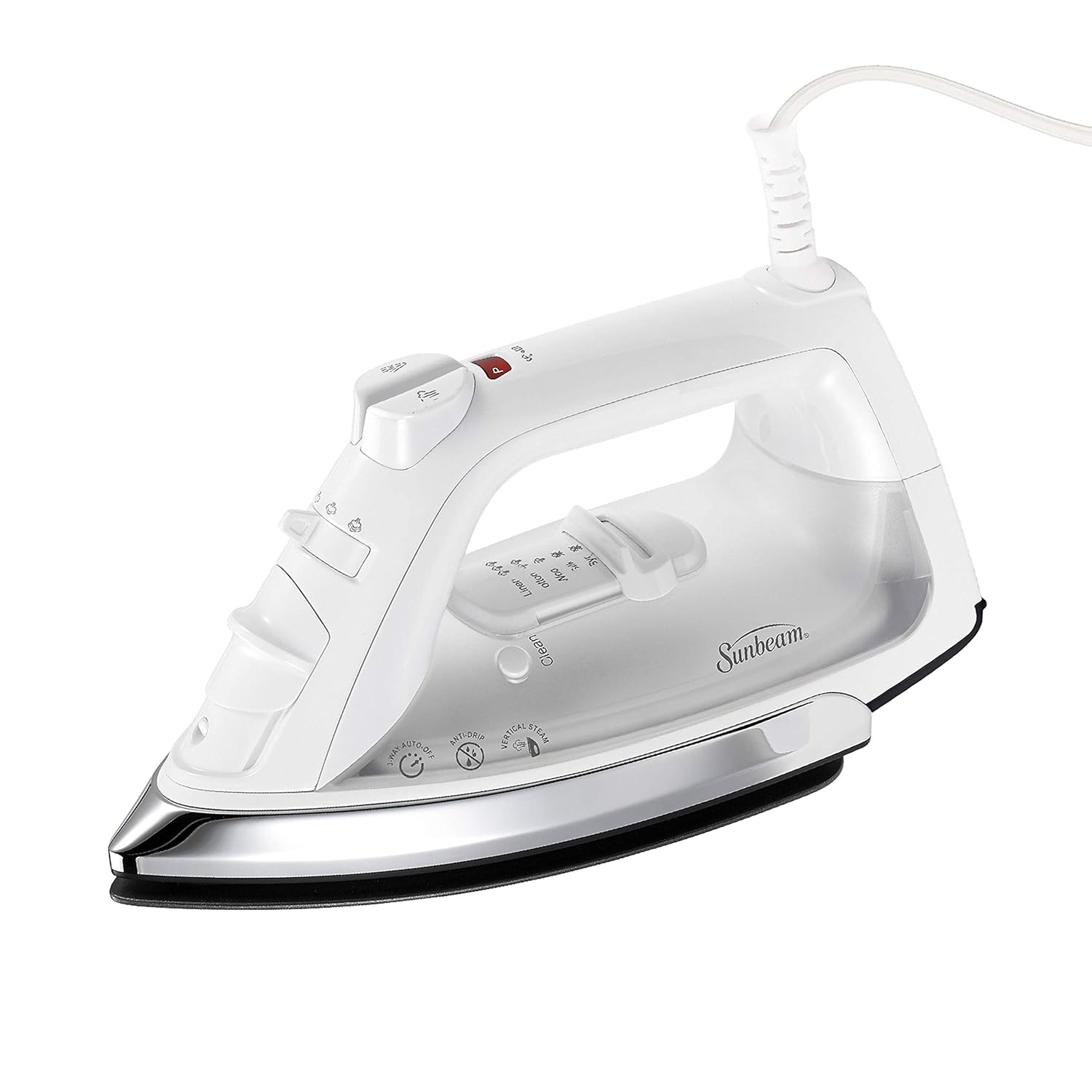My adventure started with a lovely pre-loved flannel shirt with two pockets whose flaps needed pressing. I'd acquired so many shirts that I'd already started to dread future cleaning bills. Now and then, I'd think wistfully of buying an iron and ironing board--but I was a man. Men don't iron. Yesterday, though, on my way to the dry cleaners, I stopped. How hard could it be to learn the fundamentals of ironing shirts? And what would the cost be, compared to dry cleaning some 65 shirts every year?
I decided to test my ingenuity and skill, starting off with a visit to Target. I found a dozen-odd irons to choose from and an array of ironing boards. My determining factors: studio-friendly size...a brand name that I trusted...cost.
I left with a small Sunbeam steam iron:

And, to go with it, a countertop ironing board:

My total cost was less than that of dry cleaning just 30 shirts. But I still didn't know how to iron!
Thumbs up to Sunbeam for clear instructions on the use of and care for the iron. And the ironing board mounted flat on the kitchen countertop. I'd learned I could use the steam function with tap water--not distilled, as I'd guessed. Or I could dry iron if I pleased. I pleased, for my initial run at least. And I'd start with the flap-wild shirt pockets and collar.
It sounds silly to make a big deal of this, yes. But as an exercise in mastery, there's nothing silly about it. Next: what were my options for ironing a full shirt? I could fine-tune, as I pleased, but were there agreed-upon basics? Did I need a book to learn this or should I ask everybody I knew? No, I'd learn this privately, with a little help online.
The online friend I've learned to trust for all masculine matters is The Art of Manliness. And there I found just what I needed:
https://www.youtube.com/watch?v=0EpinulvKTA
Now the great ripple effect was in motion. I began to think of other ways and modes of thought that needed changing.
Writing:
1) To gain speed, I don't necessarily need to compose more quickly. I do need, though, to dictate my handwritten drafts into Dragon Naturally Speaking regularly as I go.
2) I need to make better use of the promoting services Amazon offers now that I have a modest hit in The Big Bopper. (50-plus 4 and 5-star reviews.)
3) I should look into approaching Kirkus for a review of my WIP, which is strong and offbeat.
Job search:
1) I need to follow my original plan to sit tight until mid-March when I've made full use of my medical/dental benefits. But instead of doing nothing, I need to prepare.
2) Preparation includes touting the certificate I've received from an online course in medical terminology.
3) I should also buff my resume to justify the higher salary I'm worth.
And so on. You catch my drift. Your own adventure can begin with anything...including a neatly pressed shirt.






